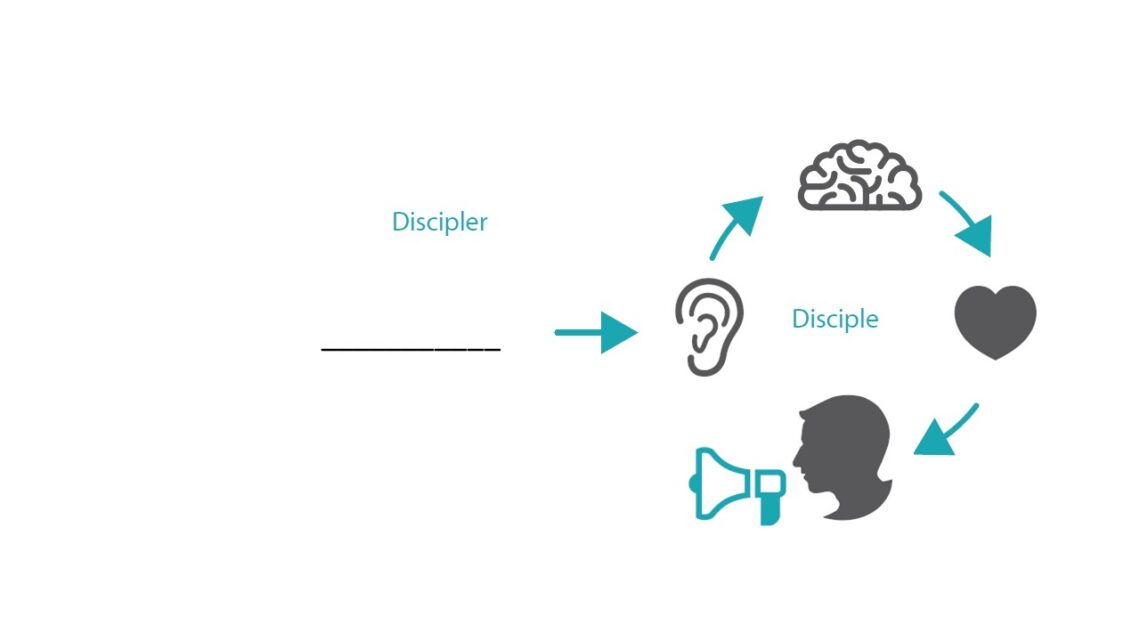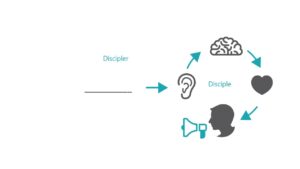
What story are you telling yourself?
We all tell ourselves stories everyday. Some positive, some negative. Each day our inner dialogue plays out a soundtrack that points us in a direction of hope, faith, and joy, or it points us to a place of worry, hopelessness, and pessimism.
If I were to record the soundtrack in your head and play it for myself and others to hear, what would I learn from it?
Many of us suffer from “stinkin thinkin” and I’ll be the first to raise my hand and admit this challenge. Regularly, I find myself downplaying my abilities, discouraging the work that I’ve done, or simply bad-mouthing (thinking) about my performance in life. It’s toxic, and it must stop.
Yet, I don’t think I’m alone in this. I believe many of us have mentally set limitations for ourselves, downplay our own gifts and talents, and play a soundtrack that simply isn’t healthy.
So why do we do it, and how do we get rid of it?
First, I think many of us have been playing this soundtrack in our heads for so long that it seems normal. It’s become habit, like brushing our teeth or eating dessert after a meal. We keep doing it because we’ve conditioned ourselves to continue its habitual nature. There are many reasons why we can find ourselves here to begin with whether it be pain, past failures, feeling a lack of purpose or a number of other reasons, and much of which will need to be unpacked with a coach or counselor. But, for the sake of this blog post, I think I simply want to focus most of this writing on the solution and how do we get past it…
Neuroplasticity is the process and ability of the brain to change and grow through reorganization. The Apostle Paul told the Phillipians that he “learned” to be content with whatever circumstances whether he had much or had little. Perhaps contentment wasn’t a natural thing for Paul either since he said it himself a couple times that this was a learned process. When we retrain or reorganize our thoughts, we are creating new neuropathways for our brains to consider. We are forming new habits. But just like any habit that’s been formed, this one can also be challenging to break if not done with great intentionality…especially if we’ve been living it for a long time.
My life coach recently asked me, “Matt, what would it feel like if you were no longer playing the same defeating soundtrack in your head over and over?”
My answer:
Freedom.
On this journey to freeing myself from stinkin thinkin, I’m going to share a couple small steps that are helping me, that can also perhaps help you…
-
Become increasingly self-aware. What’s interesting about this process is that sometimes we can completely miss it. I needed a coach to point it out and help me recognize this negative story I continued to speak over my life. I didn’t even realize it was there! As soon as I really began taking assessment of the stories in my head, I began to recognize them and realized he was right! Who knew? It’s not like I can record my inner dialogue and play it for you, but he picked up on it and pointed it out. I think we all need better self-awareness. This path to freedom will require you to do internal work that sometimes reveals unpleasant things. That’s why I highly recommend you invest in a good coach or counselor and learn more about what is driving your life. The more you understand about yourself, the farther you can go.
-
Intentionally build a new pathway. My old way of thinking sounds something like this: “That last thing you tried wasn’t a success, so this current thing your’re working on now, will probably not work either.” The reality of this is spot on if I continue to speak this direction over my life. I’m already setting myself up for failure, and I’ve barely even started this new thing! But we have to be intentional about choosing the right dialogue. Instead, each day I choose to speak life and hope over my ministry, business, and family direction. I’m building a new pathway, a new habit. I’m not the owner of my ministry, my family, or even my life. God is. The more I think I’m in control, the more pressure I put on myself to “make it happen” instead of simply enjoying the journey and freedom God offers along the way. Maybe that’s what Paul was talking about when he learned contentment when he had much or had little.
-
Real-time Replacement. This past Sunday I had the privilege of speaking at a local church. When I was alone at the office going through my preparation the day before, I finished speaking a portion of the talk aloud and noticed that I said to myself, “Well, that kinda sucked.” Immediately, I was caught off guard at myself and replaced that verbal vomit with “No, actually that was pretty good.” Now, did I lie to myself when I replaced the first thought with the second? Was it actually pretty good? YES! It was! So no, I didn’t lie to myself about it being good…if anything, I lied to myself the first time about it being bad! But for whatever reason, I’ve conditioned my brain to tell myself that it wasn’t. I even said it out loud! I’ll say it again…it was a verbal vomit from my stinkin thinkin. But I didn’t stop at the first thought. I recognized it and immediately replaced it with a positive healthy one. Old habits must be replaced with new ones.
Although I’m talking much about the brain, there’s more that goes into this as we consider what information we listen to, how it’s then processed in the brain, and how it eventually affects our heart, and exits our bodies through our words and actions.
Check out this chart that we created for the “Language” section in our training curriculum for LEAP – From Life Group to Life on Mission.
Everything starts with what we feed ourselves. What we consume matters. Jesus constantly said, “Those with ears, listen.” We take in information whether it be good or bad, or true or false, and it has a discipling or teaching effect on us. We then take that information and process it in our brains. Our brains then begin telling stories and consider the information as valuable or not for our lives. This is such an important process! Paul tells us that we should “take every thought captive.” These thoughts then transfer to the heart, and the heart is the motor of our being. Jesus talked about the heart often and the condition of it. Our hearts direct so much that it’s no surprise the Psalmist said, “Above all else, guard your hearts!” Both Luke and Jesus then communicate about how the mouth speaks what the heart is full of.
What dialogue are we speaking internally to ourselves and out loud to others? It’s a reflection of the heart. Is our heart full of joy and hope? Or is it full of hopelessness, doubt, and stinkin thinkin derived from the brain? I’d like to challenge you to ask yourself these questions today:
What are you feeding your soul each day?
What kind of stories/soundtracks are you playing in your head?
Is there room for growth?









Write a comment: